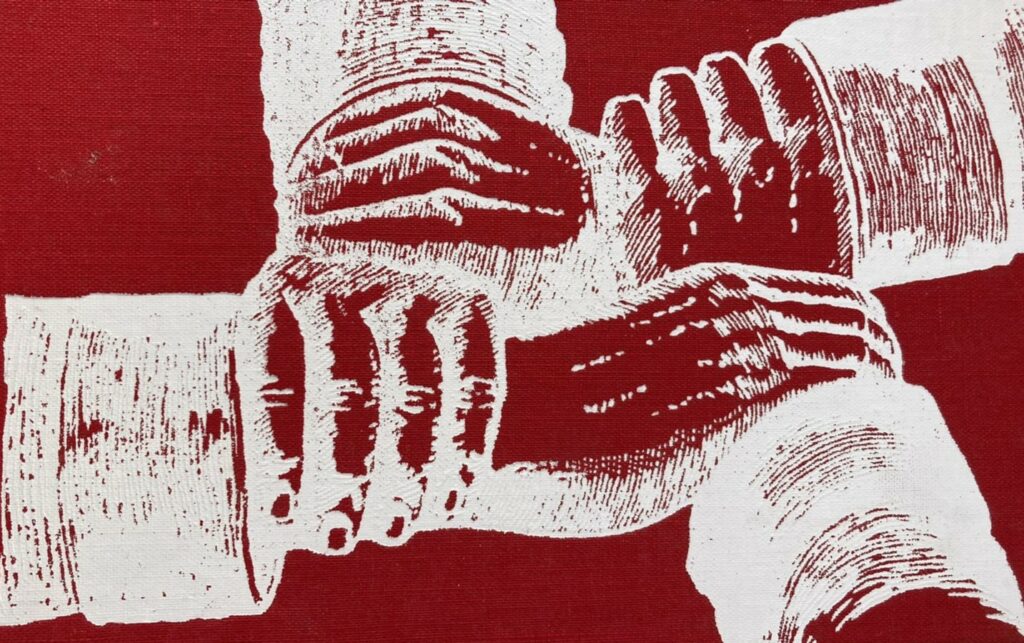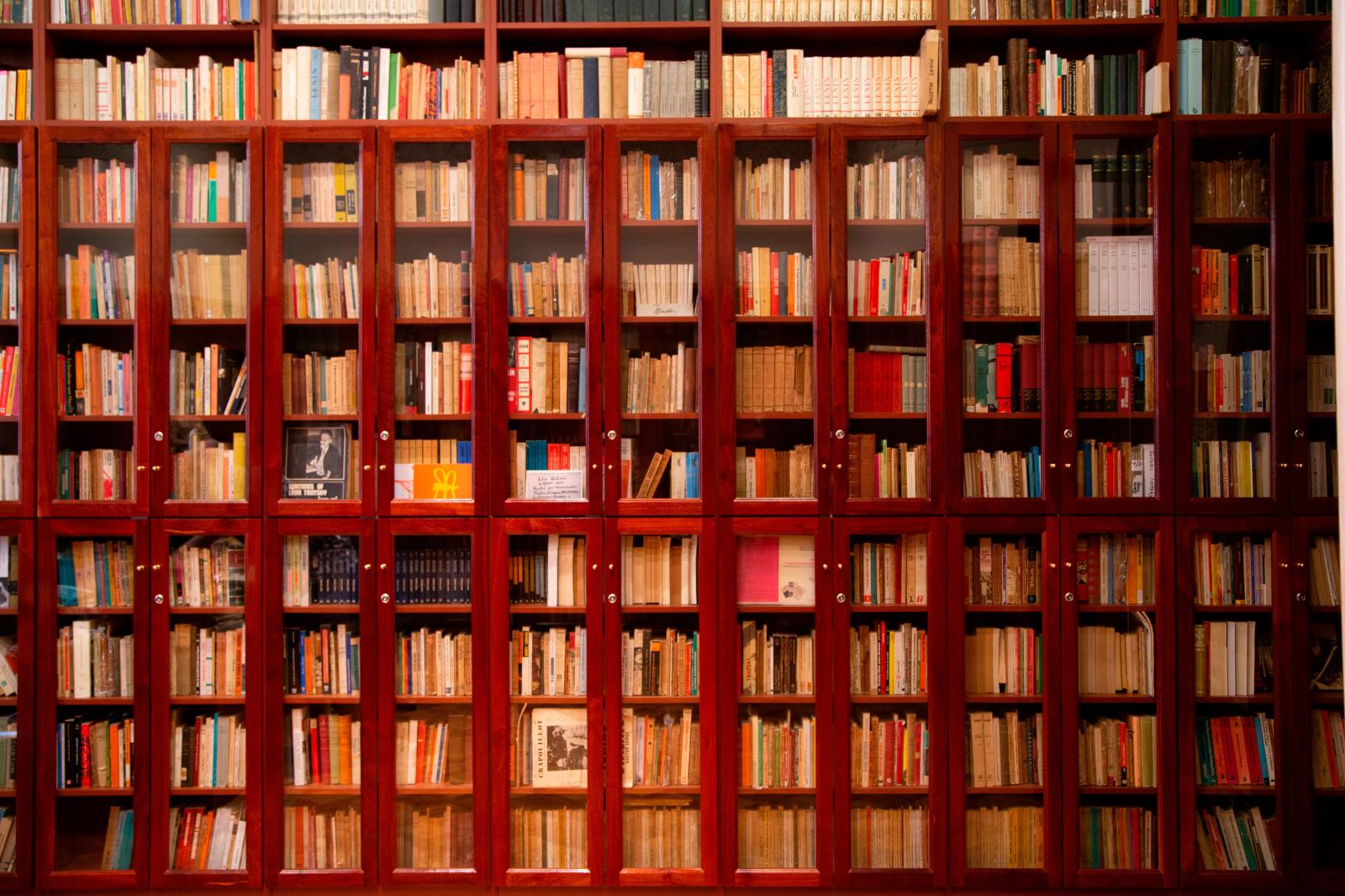
We, the undersigned, social researchers from different countries around the world, are the first members of the International Association of Friends of CeDInCI, founded in March 2024.
The aim of our Association is to support the work of CeDInCI, especially in a context where the aggressive policies by the new Argentinean government are putting its continuity at risk.
The Centre for Documentation and Research on Left-wing Culture (CeDInCI, by its Spanish acronym) is a non-profit civil association founded in the city of Buenos Aires in April 1998. Its primary goal is preserving the cultural heritage of the left and social movements in Latin America. For 26 years, it has managed to assemble complete collections of the most important publications produced in the continent by political, cultural, trade union, student, human rights, women’s and sexual dissidence organizations, becoming the main source of reference in studies on the left, both in Argentina and the whole region.
The CeDInCI’s Newspaper Library currently holds 10.000 collections of periodicals, its Library has an estimated 160.000 volumes, its Archive safeguards 165 personal collections of activists, intellectuals and artist, 2000 political pins, 2500 posters, 6000 photographs, 300 old records and 40.000 flyers. It also holds around a hundred original works of art by renowned artists.
CeDInCI hosts researchers and research projects sponsored by scientific organizations from Argentina and abroad, housing a dozen Conicet researchers and another dozen doctoral and postdoctoral fellows. Its digital resources, such as the Latin American magazines portal AméricaLee and the Biographical Dictionary of the Latin American Left, as well as the sites Sex and Revolution and the image bank Imagoteca, are widely visited by researchers, journalists, educators and the general public.
CeDInCI’s headquarters welcomes at least 2,000 readers yearly. A high percentage of them are scholarship holders from universities in Europe and America.
CeDInCI has received numerous recognitions for its work and heritage. In 2015, its Collection of the Southern Cone Workers’ Press 1863-1973 was declared «Documentary Heritage of Latin America and the Caribbean» by UNESCO. In September 2018, it was awarded the Diploma of Merit as one of the «five best institutions of the last decade» awarded by the Konex Foundation. In April 2022, it finally opened its own headquarters in downtown Buenos Aires thanks to the support of the Friedrich Ebert Foundation.
However, these national and international recognitions do not prevent the ultraliberal and reactionary gale currently raging in Argentina from threatening CeDInCI’s existence. The Centre we are defending was born as a commitment to convert the dispersed and privatized heritage of the various social movements into a common heritage, available to all in a collective space and accessible both in person and virtually. But as we know, neoliberalism is above all a vast enterprise of appropriation not only of a country’s natural resources, but also and above all of the social, political and cultural conditions of commonwealth. The neoliberal government rejects not only any form of regulation at the macroeconomic level, but also any form of social regulation, any form of decision-making by a social collective over its own destiny. Even elementary forms of social action such as the sharing of cultural heritage (a popular library) or the communal management of basic foodstuffs (a soup kitchen), today appear as obstacles that hinder the declared goal: a society atomized into possessive and competitive individuals, freed to the blind automatism of the free market. It is nothing other than the local version of the global expansion of the far right, which is putting democracy under strain in various latitudes.
In this context, and just a few days before its 26th anniversary, CeDInCI has seen an increase in the cost of maintaining its buildings and, at the same time, its financial resources and work team have been drastically reduced. The aggressive austerity policies by the national government have even eliminated the modest subsidy that CeDInCI, along with other scientific institutions in the country, received from the dismantled Ministry of Science and Technology. At the same time, taxes and local services (electricity, water, cloud, etc.) for its headquarters have skyrocketed.
The largest cultural and political archive of the left in Latin America, which safeguards the heritage of every protest, revolutionary, progressive, feminist and dissident movement on our continent, is therefore at risk.
We invite all those who encourage the work that CeDInCI has been doing for 26 years to support it by making a voluntary contribution of around 10 €/US$ per month, or an annual contribution of 100 €/US$. Payments can be made by clicking on the following link:
https://cedinci.org/dona-cedinci/#suscripciones
We thank you for your cooperation. We would be grateful if you could pass this message on to all your contacts who are committed to supporting cultural heritage as a common good.
First members of the International Association of Friends of CeDInCI:
Enzo Traverso (Cornell University), Peter Burke (University of Cambridge), Silvia Federici (State University of New York at Buffalo), Jean-Yves Mollier (professeur émérite, Université de Versailles-Saint-Quentin-en-Yvelines), Pablo Yankelevich (El Colegio de México), Daniel James (Indiana University), Bruno Groppo (Université de París I Panthéon Sorbonne / Università di Padova), Pierre Salama (†)(professeur émérite des universités Sorbonne Paris Nord), Ulrich Brand (Universitât Wien), Hanno Ehrlicher (Universität Tübingen), Oscar Cismondi (international consultant, former FAO), Arturo Taracena (UNAM-Mérida, México), Gerardo Caetano (Universidad de la República), Axel Gasquet (Université Clermont Auvergne – CNRS), Marcelo Ridenti (Unicamp), Roberto Massari (Massari editore, red Utopia Rossa), Liliana Weinberg (Universidad Nacional Autónoma de México), Cecily Marcus (University of Minnesota), Dardo Scavino (Universidad de Versailles Saint Quentin en Yvelines/Universidad de Pau y de los Países del Adour) Claudio Batalha (Unicamp), Constance Bantman (University of Surrey), Marcel van der Linden (International Institute of Social History, Amsterdam), Julián Casanova (Universidad de Zaragoza), Klaus Meshkat (Leibniz Universität Hannover), Sandra McGee Deutsch (University of Texas at El Paso), Rafael Mondragón (UNAM), Daniel Goldin (Jardin Lac, México), Mara Lamadrid (México), Javier Pérez Iglesias (Universidad Complutense de Madrid), Cristina Moyano Barahona (Decana Facultad de Humanidades Universidad de Santiago de Chile), Maria Cecilia Zuleta (Colegio de México), Daniel Balderston (University of Pittsburgh), Gabriela Nouzeilles (University of Princeton), Aimer Granados (El Colegio de México), Igor Goicovich Donoso (Universidad de Santiago de Chile), Jeremy Adelman (University of Cambridge), Sergio Grez Toso (Universidad de Chile), Jan Philippe Decraen (UN consultant), Pablo Glikman (Roma)
